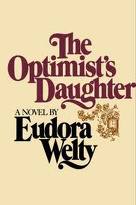 Yesterday I had the pleasure of speaking with the Maori poet and scholar, Alice Te Punga Somerville. Alice was born and raised in Aotearoa, New Zealand and she is currently a visiting Professor of Aboriginal Studies at the University of Toronto. I have been studying poetry from the Pacific in my Twenty-First Century Poetry class with Professor and Poet, Lesley Wheeler, so it was exciting to meet a real poet from this portion of the globe.
Yesterday I had the pleasure of speaking with the Maori poet and scholar, Alice Te Punga Somerville. Alice was born and raised in Aotearoa, New Zealand and she is currently a visiting Professor of Aboriginal Studies at the University of Toronto. I have been studying poetry from the Pacific in my Twenty-First Century Poetry class with Professor and Poet, Lesley Wheeler, so it was exciting to meet a real poet from this portion of the globe.
In her lecture, Alice Te Punga Somerville mainly talked about the current condition of New Zealand poetry. Over the past decade, Bill Manhire and Damien Wilkins have compiled annual online collections of the Best New Zealand Poetry. Recently, they published The Best of the Best New Zealand Poetry, which contains what these individuals considered to be the absolute best from the past years online collections. Somerville pointed out that in both of these anthologies there was a disturbingly small number of Maori and Pasifika poets included. Although Manhire claims that this was because there are not very many Maori and Pasifika poets; this does not make sense because there are almost 80 such poets featured in Mauri Ola, which is an anthology of contemporary Polynesian poems published in 2010. The lack of Maori and Pasifika poets included in these collections results in a sort of chain reaction. Manhire, who is the first poet laureate of New Zealand, and Wilkins both exert a lot of influence on who gains admittance to MFA programs and who ultimately gets published.
This information made me wonder what minorities are not being represented in American poetry anthologies, or Canadian or even Spanish anthologies? This question relates to several issues that we have previously discussed on the Snopes blog. For instance, the Tucson book ban and The Penguin Anthology of 20th Century American Poetry, edited by Rita Dove, are both connected to this question.
What are your thoughts? Do you believe that it is the editor’s duty to feature minorities in a national collection? Why or why not?
Check out the R.T. Smith’s past posts “Buried Antipathies: The Dove Anthology, Second Wind” and “Top Ten Reasons for Banning Books by Ethnic Minorities” for more information.

 1. A Farewell to Arms, Ernest Hemingway
1. A Farewell to Arms, Ernest Hemingway 2. All the King’s Men, Robert Penn Warren
2. All the King’s Men, Robert Penn Warren 3. The Optimist’s Daughter, Eudora Welty
3. The Optimist’s Daughter, Eudora Welty 4. The Sound and the Fury, William Faulkner
4. The Sound and the Fury, William Faulkner I’m sure most male readers are rolling their eyes at the inclusion of Austen on this list. As a woman, my affinity for Ms. Austen is probably coded into my DNA. Nevertheless, Persuasion is arguably the author’s best and often most under-appreciated work. This novel is darker than her previous books and represents a shift towards Romantic style and sensibilities. Austen is a master of dialogue and character development. If you can’t stand the love story, at least read and admire Austen for her wit, writing, and satire.
I’m sure most male readers are rolling their eyes at the inclusion of Austen on this list. As a woman, my affinity for Ms. Austen is probably coded into my DNA. Nevertheless, Persuasion is arguably the author’s best and often most under-appreciated work. This novel is darker than her previous books and represents a shift towards Romantic style and sensibilities. Austen is a master of dialogue and character development. If you can’t stand the love story, at least read and admire Austen for her wit, writing, and satire.